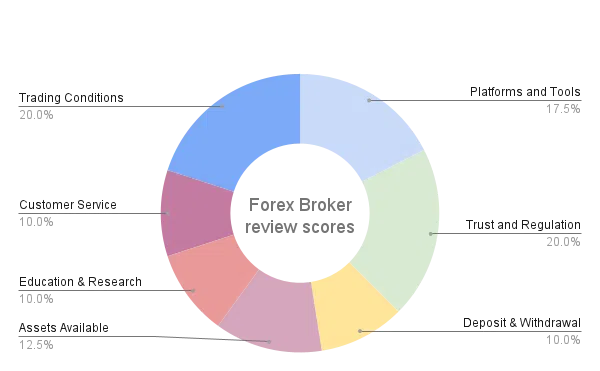Introduction
Forex trading has gained significant popularity in India(1), attracting a growing number of traders seekingto capitalize on the global currency markets(2). One of the key considerations for traders is the availability and convenience of deposit methods offered by Forex brokers. This blog will provide an in-depth look at the various deposit methods available to Indian traders, highlighting(3) their benefits, limitations, and practical tips to ensure a smooth trading experience.

Common Forex Broker Deposit Methods in India
1. Bank Transfers
Overview: Bank transfers are one of the most traditional and widely used methods for depositing funds(4) into a Forex trading account. This method involves transferring money directly from a trader’s bank account(5) to the broker’s account.
Advantages:
- High level of security and reliability.
- Suitable for larger transactions.
- Direct transfer from a local bank account.
Limitations:
- Processing times can be longer, often taking several business days.
- May involve bank fees and charges.
- Requires thorough verification processes.
Tips:
- Ensure your bank supports international transfers if the broker’s account is overseas.
- Keep copies of transaction receipts for record-keeping and dispute resolution.
2. Credit/Debit Cards
Overview: Using credit or debit cards for deposits is a convenient and fast method. Most brokers accept major card networks like Visa and MasterCard.
Advantages:
- Instantaneous deposits.
- Easy to use and widely accepted.
- Suitable for both small and large deposits.
Limitations:
- Card deposits may incur processing fees.
- Daily or monthly transaction limits may apply.
- Potential for declined transactions due to bank policies on Forex trading.
Tips:
- Notify your bank of the intended Forex transactions to prevent blocks or declines.
- Use cards with lower foreign transaction fees to save on costs.
3. E-Wallets
Overview: E-wallets have become increasingly popular for their speed and ease of use. Common e-wallets include PayPal, Skrill, and Neteller.
Advantages:
- Instantaneous deposits and withdrawals.
- Lower transaction fees compared to bank transfers.
- High level of security and privacy.
Limitations:
- Not all brokers accept every e-wallet service.
- Some e-wallets may charge withdrawal fees.
- May require verification processes.
Tips:
- Choose an e-wallet service that is widely accepted by brokers.
- Verify your e-wallet account to lift transaction limits and access full services.
4. UPI (Unified Payments Interface)
Overview: UPI is a real-time payment system developed by the National Payments Corporation of India, facilitating inter-bank transactions.
Advantages:
- Instant and free transfers.
- Direct linkage with bank accounts.
- Increasingly accepted by Forex brokers targeting Indian clients.
Limitations:
- Currently, not all brokers offer UPI as a deposit method.
- Daily transaction limits may apply.
Tips:
- Use a UPI ID linked to a bank account with sufficient funds.
- Ensure your Forex broker supports UPI transactions.
5. Cryptocurrencies
Overview: Some progressive Forex brokers now accept cryptocurrencies like Bitcoin, Ethereum, and others as deposit methods.
Advantages:
- High level of privacy and security.
- Fast processing times.
- Lower transaction fees compared to traditional methods.
Limitations:
- Volatility in cryptocurrency values.
- Not all brokers accept cryptocurrencies.
- Requires a basic understanding of cryptocurrency transactions.
Tips:
- Verify the exact cryptocurrency and wallet address details before transferring.
- Keep track of transaction times and fees to ensure cost-effectiveness.
Conclusion
Choosing the right deposit method is crucial for a seamless Forex trading experience. Indian traders have a variety of options ranging from traditional bank transfers to modern cryptocurrencies. Each method has its own set of benefits and limitations, so it’s important to consider factors such as processing times, fees, security, and convenience. By understanding these deposit methods and following the practical tips provided, traders can make informed decisions and focus on their trading strategies with confidence.
FAQs on Forex Broker Deposit Methods in India
1. What are the most common deposit methods offered by Forex brokers in India?
- Common deposit methods include bank transfers, credit/debit cards, e-wallets (such as PayPal, Skrill, and Neteller), UPI (Unified Payments Interface), and cryptocurrencies.
2. Are there any fees associated with depositing funds into a Forex trading account?
- Yes, some deposit methods may incur fees. Bank transfers and credit/debit card deposits often come with fees, while e-wallets and cryptocurrencies might have lower or no fees. UPI transactions are typically free.
3. How long does it take for deposits to reflect in my Forex trading account?
- Deposit times vary by method: bank transfers can take several business days, credit/debit cards and e-wallets are usually instant, and UPI transactions are also instantaneous. Cryptocurrency deposits typically reflect within minutes to a few hours.
